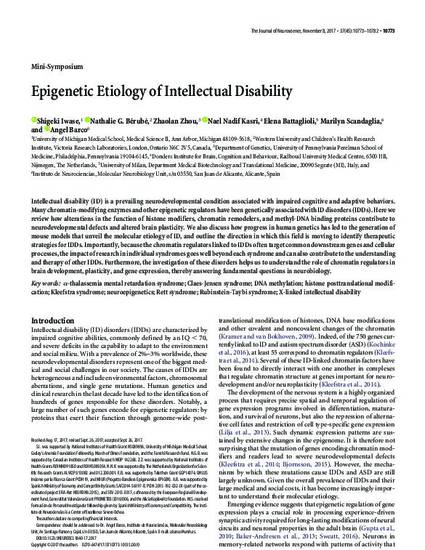
Intellectual disability (ID) is a prevailing neurodevelopmental condition associated with impaired cognitive and adaptive behaviors. Many chromatin-modifying enzymes and other epigenetic regulators have been genetically associated with ID disorders (IDDs). Here we review how alterations in the function of histone modifiers, chromatin remodelers, and methyl-DNA binding proteins contribute to neurodevelopmental defects and altered brain plasticity. We also discuss how progress in human genetics has led to the generation of mouse models that unveil the molecular etiology of ID, and outline the direction in which this field is moving to identify therapeutic strategies for IDDs. Importantly, because the chromatin regulators linked to IDDs often target common downstream genes and cellular processes, the impact of research in individual syndromes goes well beyond each syndrome and can also contribute to the understanding and therapy of other IDDs. Furthermore, the investigation of these disorders helps us to understand the role of chromatin regulators in brain development, plasticity, and gene expression, thereby answering fundamental questions in neurobiology.
Available at: http://works.bepress.com/nathalie-berube/22/
